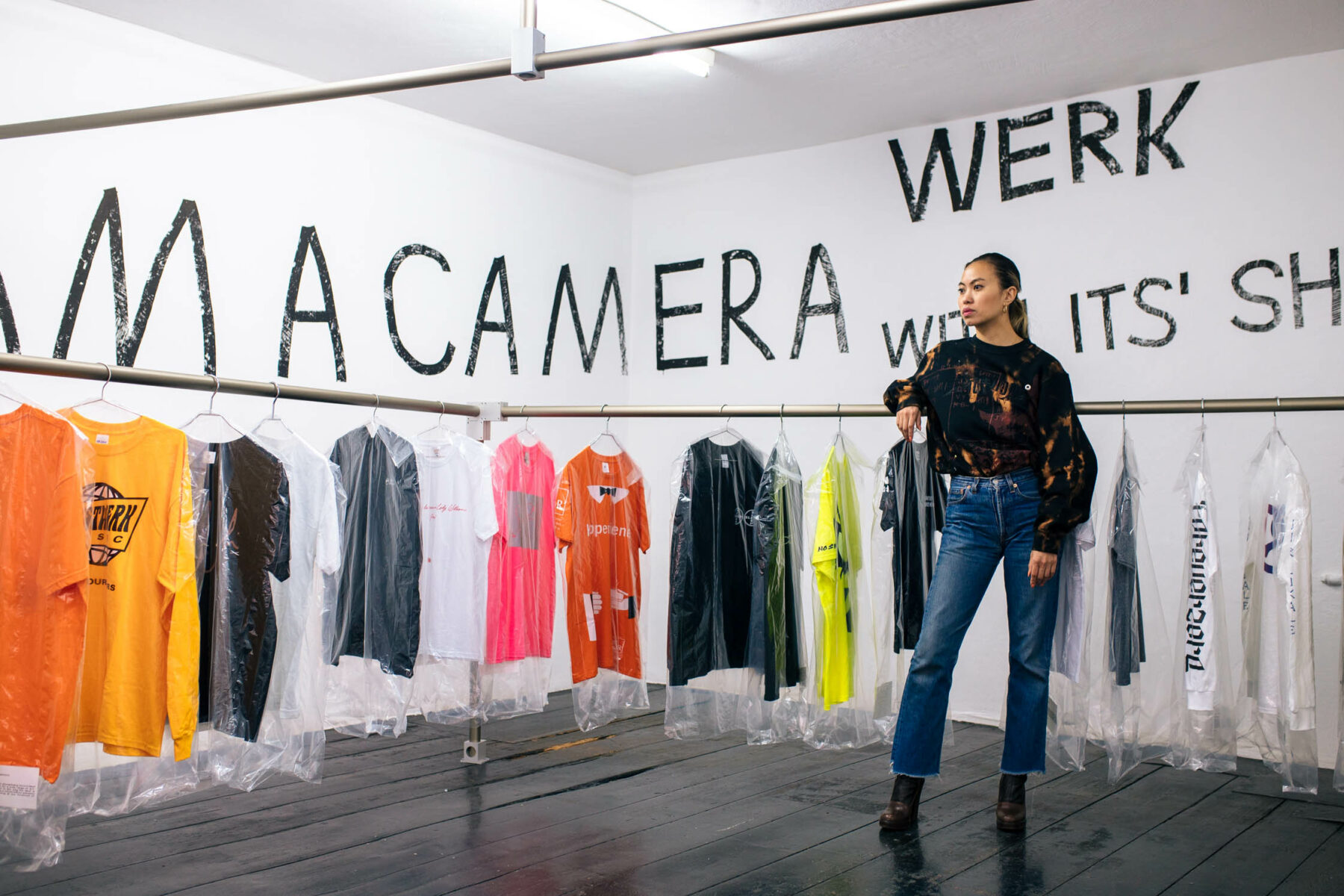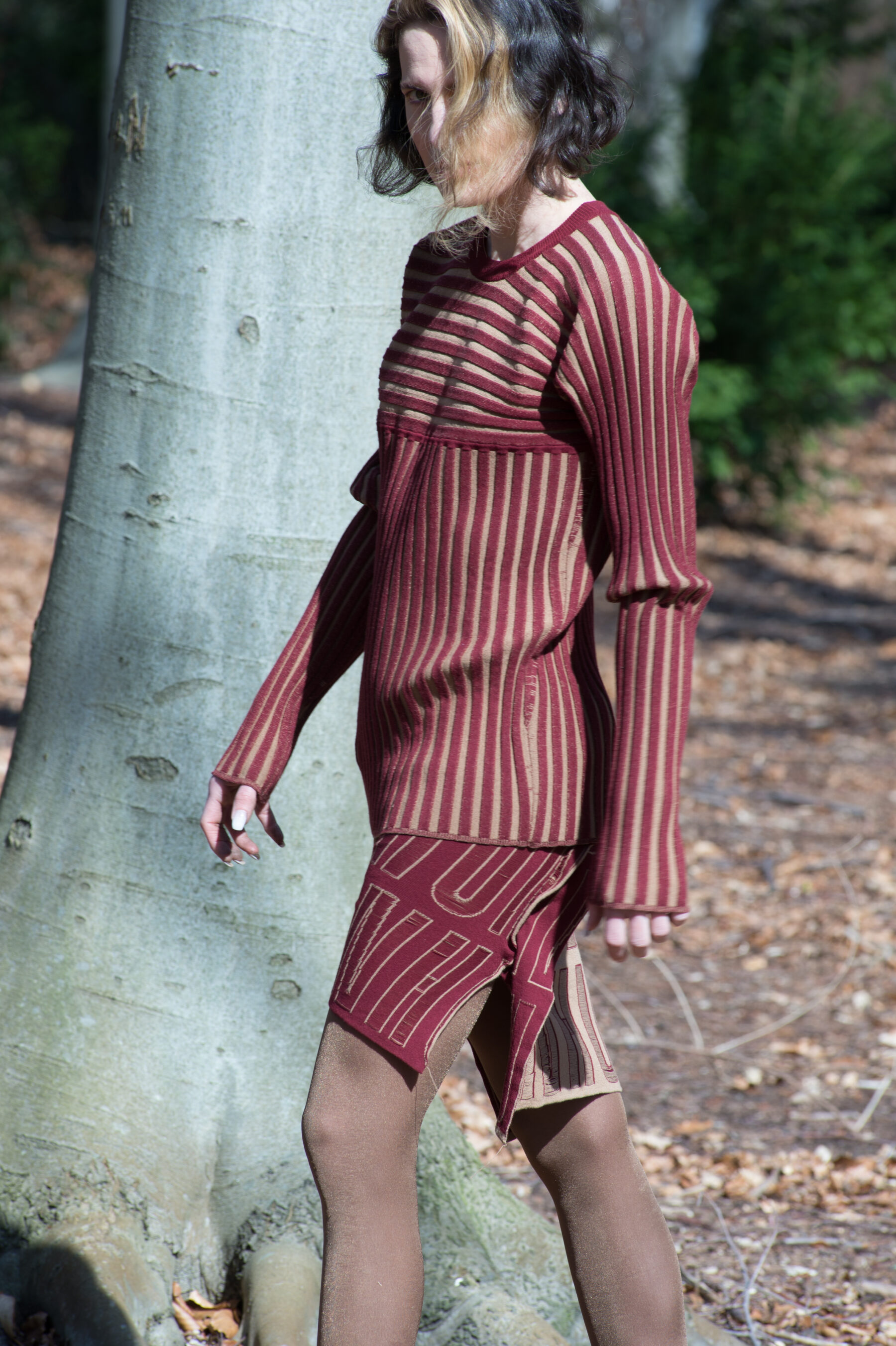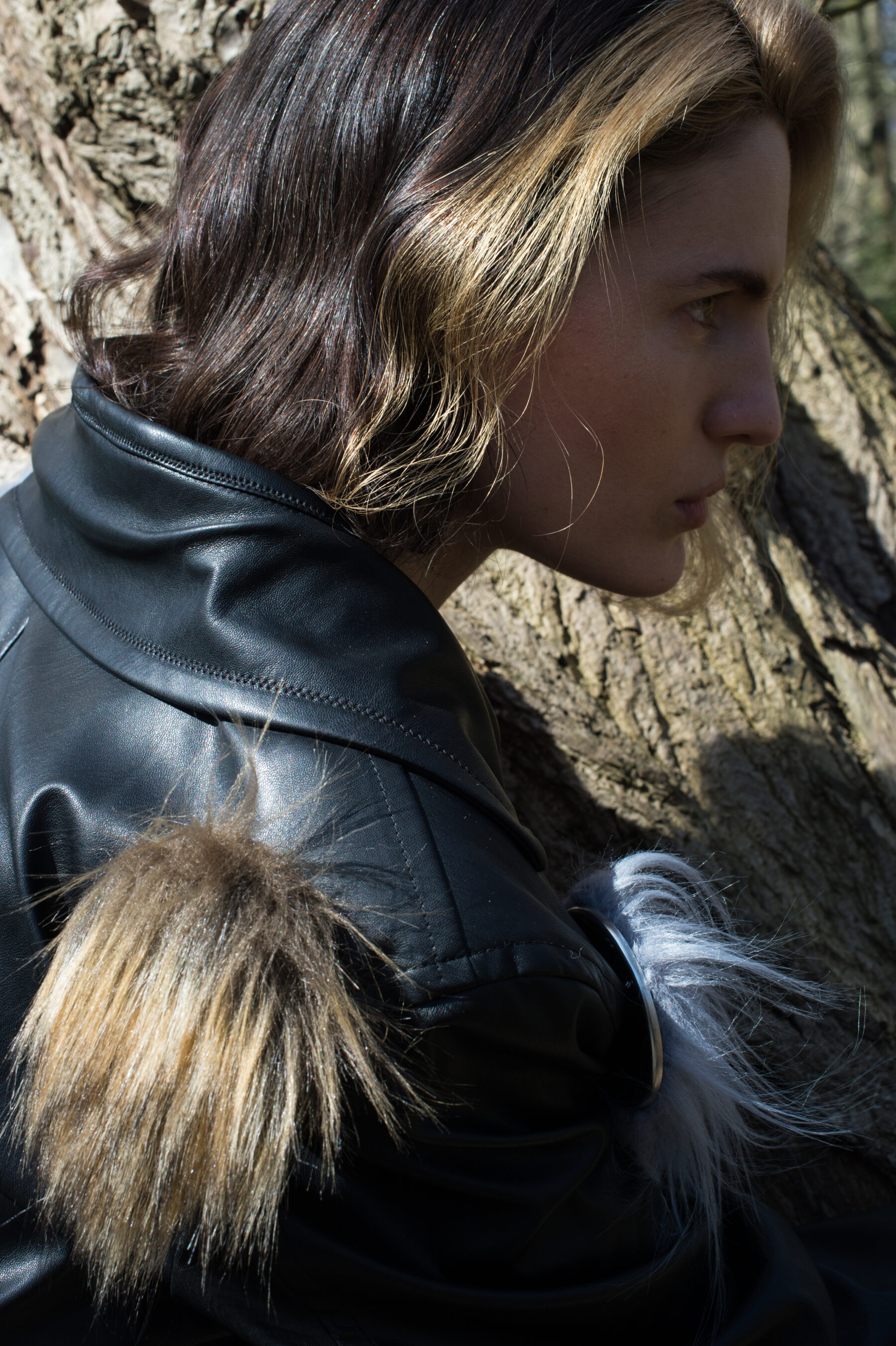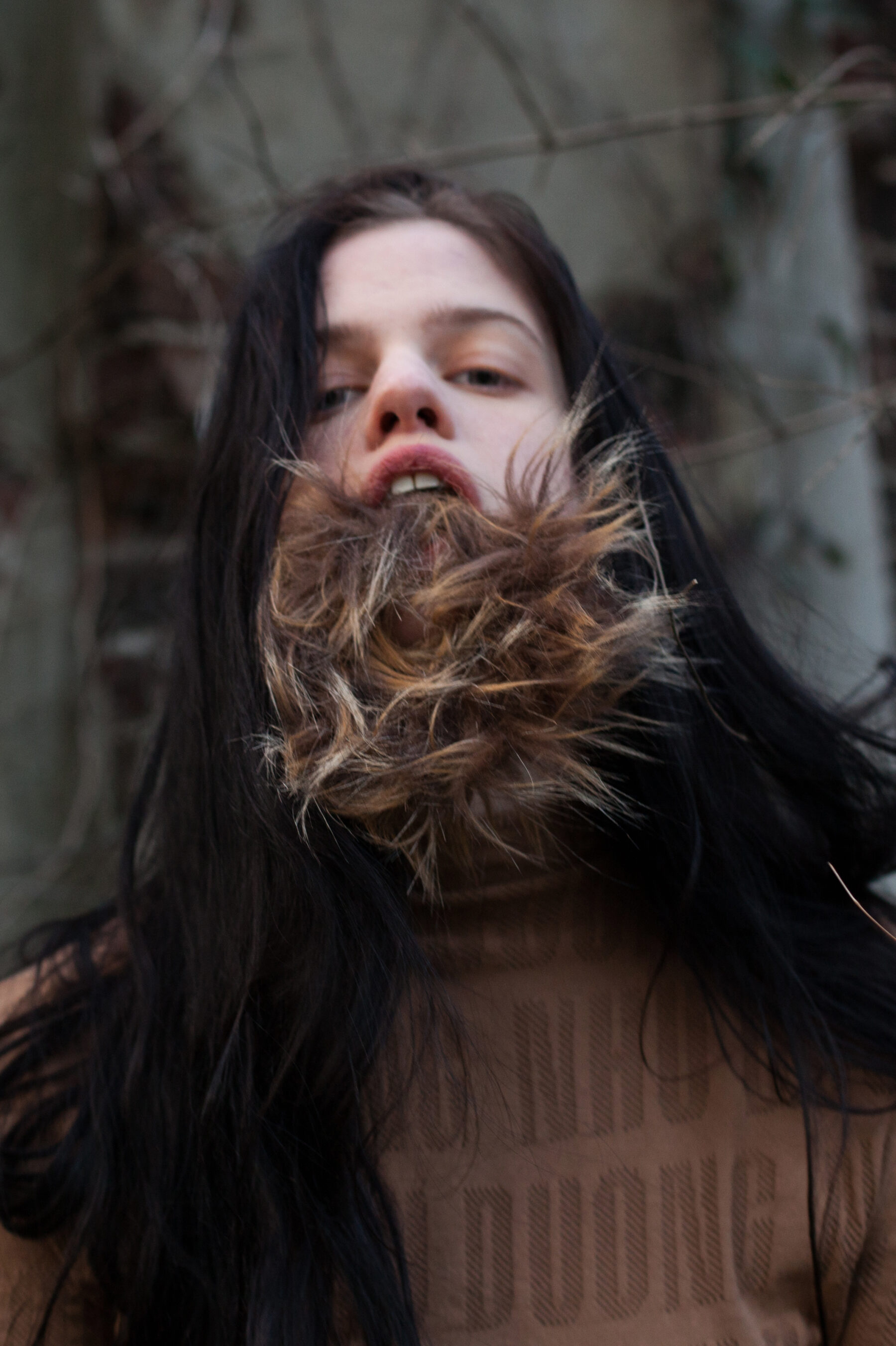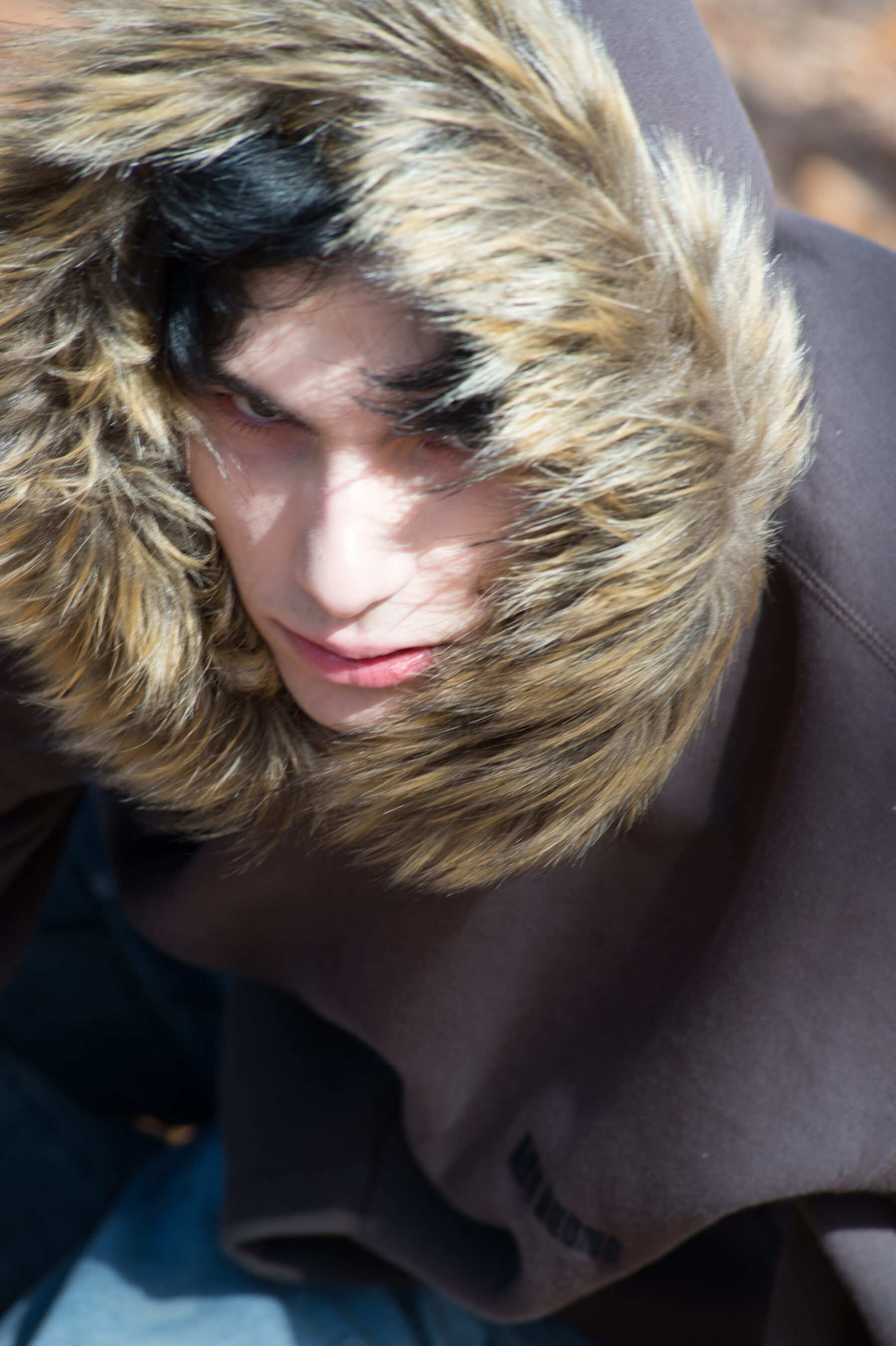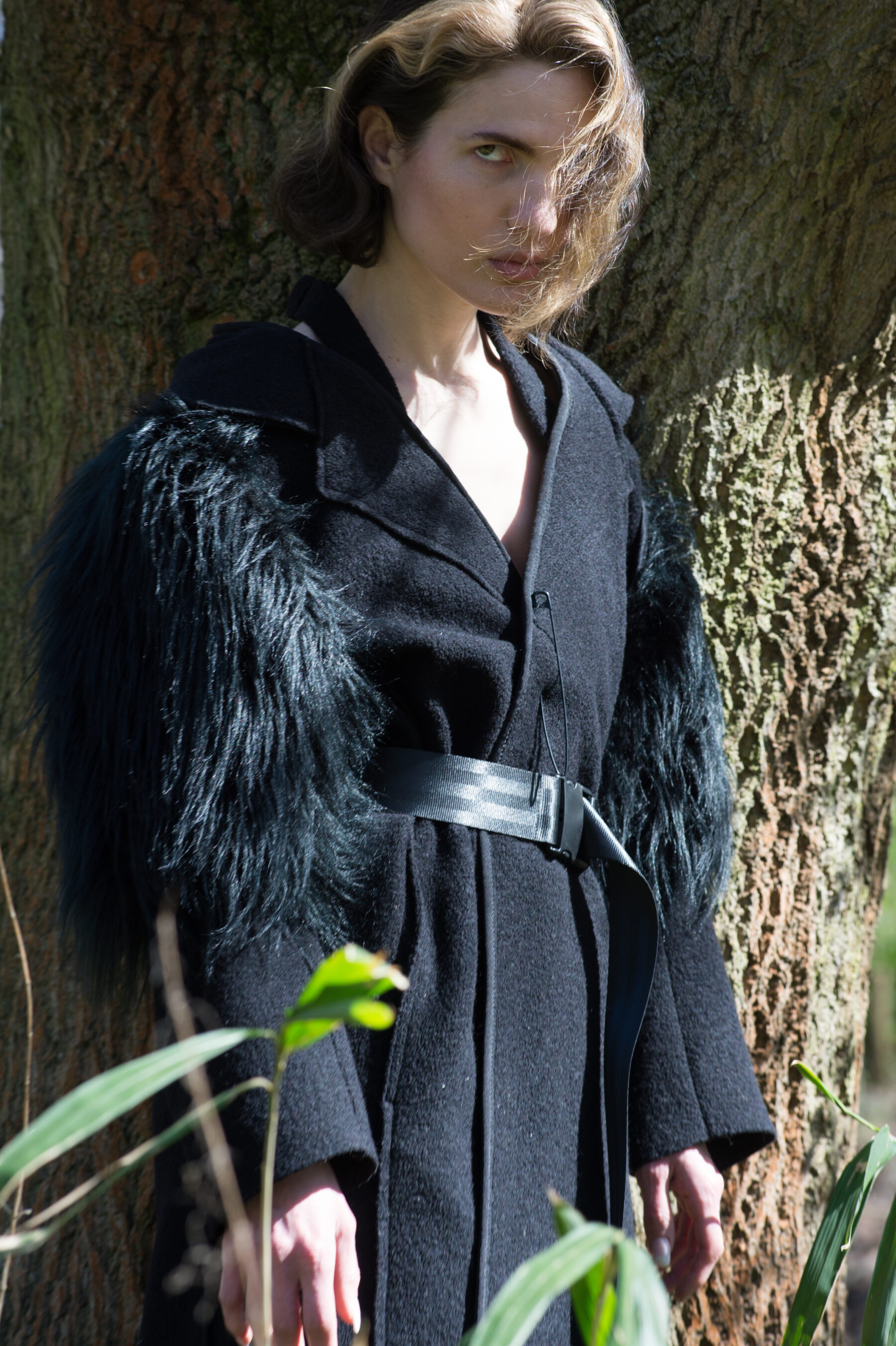Gender fluidity, racial dynamics, body diversity, and cultural representation are all hot topics in fashion right now.
The clothing industry has come under the microscope, as consumers and media alike question not just how beautiful or original a garment is, but the intention behind it—and that of its designer. More and more, we want to wear our ethics, our politics, and our increasingly ambiguous identities, on our sleeves.
For Vietnam-born, Sweden-raised, Berlin-based designer Nhu Duong, however, these concepts are inherent in her design process. Not an afterthought, not a marketing ploy, but the fundamental fabric of her creative process.
Duong’s clothes are difficult to pigeonhole, incorporating slightly perverse and unexpected details into deft tailoring and modern knitwear. Her fall/winter 2018 collection, for instance, features sporadically appliquéd tufts of faux fur inspired by excessive human hair, reversed fabric that reveals loose threads, off-kilter cuts, and industrial fastenings reminiscent of safety pins and seatbelts. Duong describes it, in raw human emotive terms, as “an animalistic interpretation of transformation in the sense of metamorphosis. The collection is about becoming animal; mutating, but also shame. Hairiness can be a distant reminder of our primal instincts and animal past that we cannot control.”
“I think there is something theatrical with my clothes,” says Duong, who began her fashion studies at Academia Italia in Florence, and graduated from Beckmans College of Design in Stockholm. “I like to play with references, materials or elements one may recognize from somewhere else, or seem like [something] they are not. Wearing a mandarin collar, a pyjama-like suit, or faux-fur patches become performative gestures. I aim to question traditional boundaries of culture, gender, body types, and class in favor of a more fluid notion of identity.”
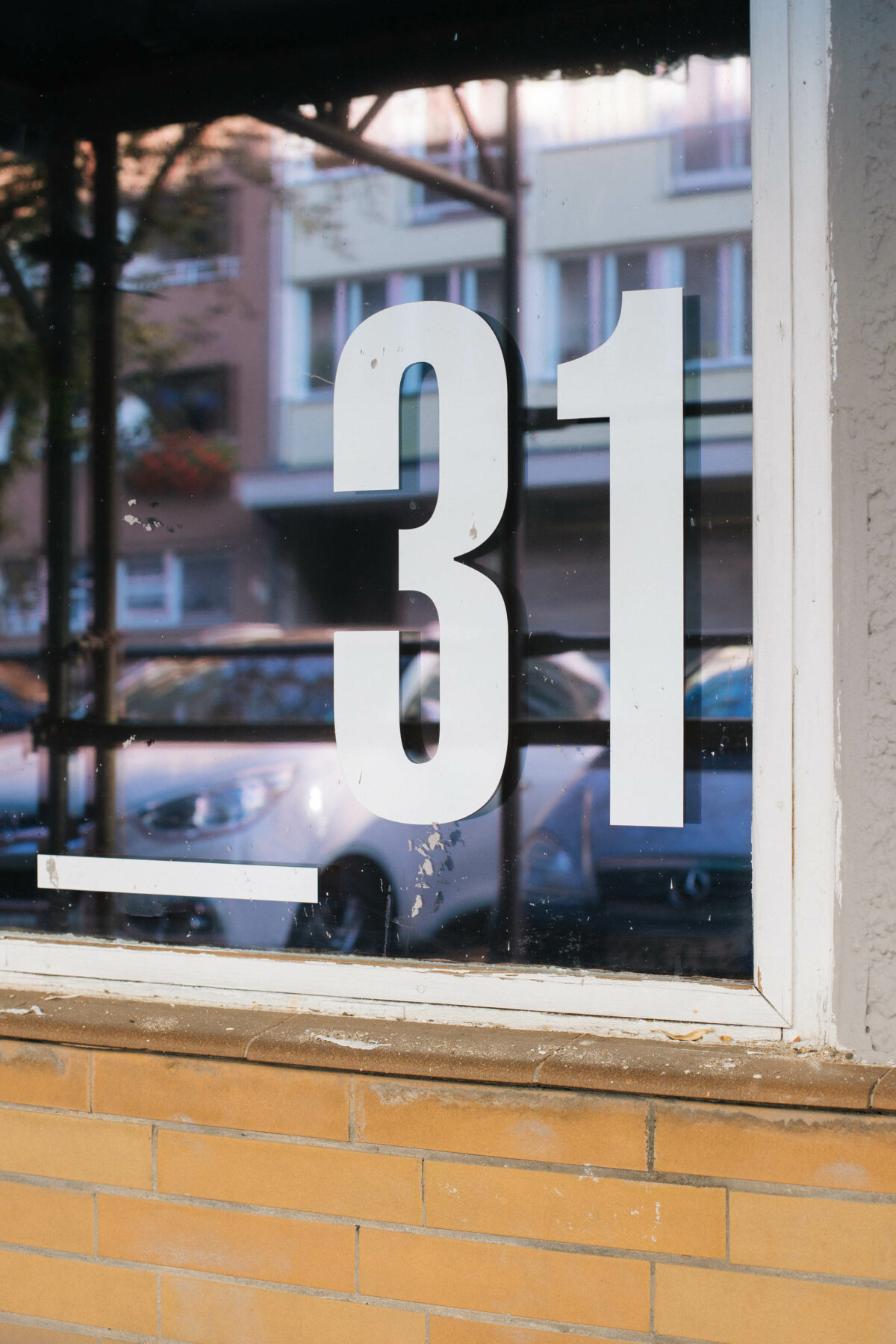
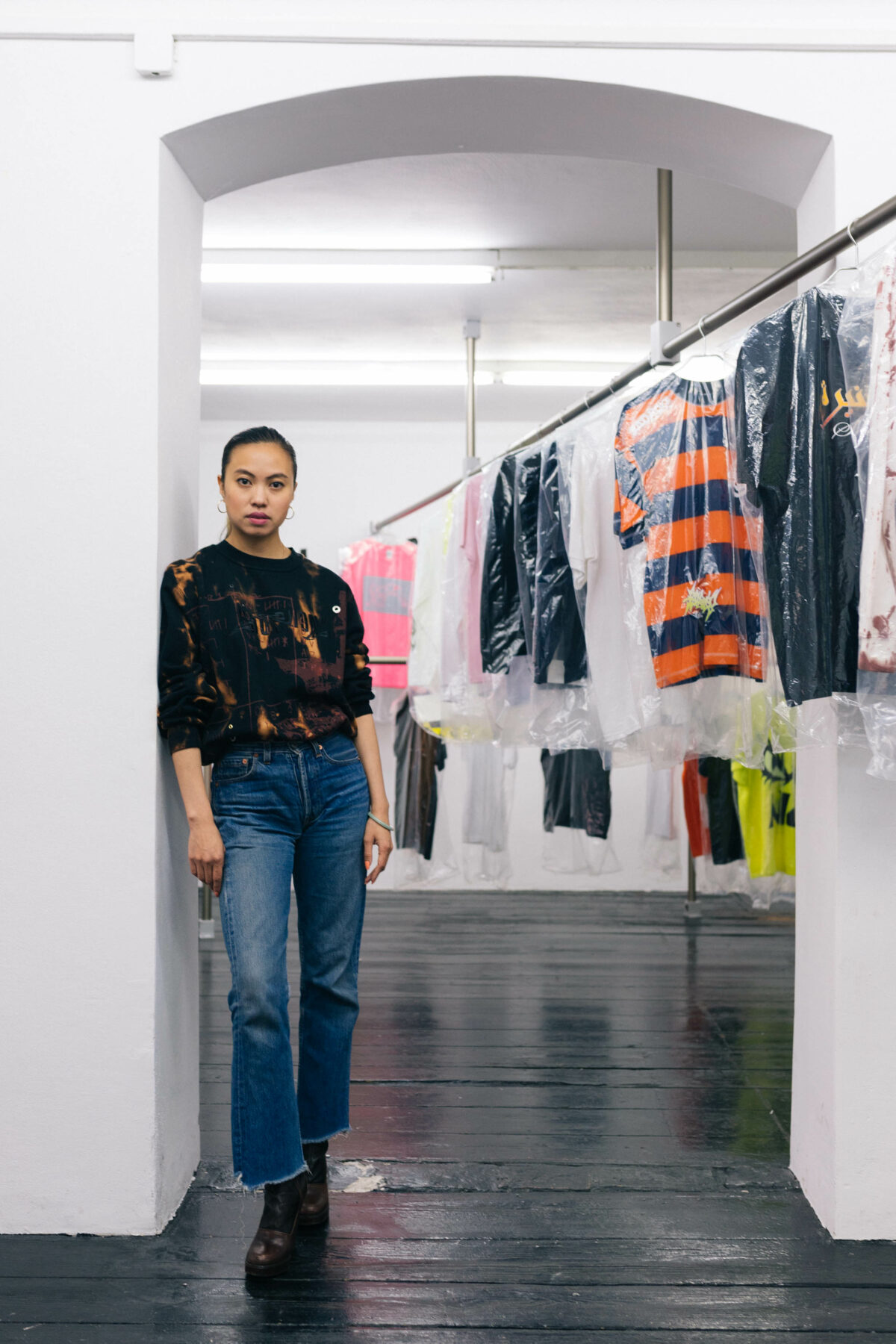
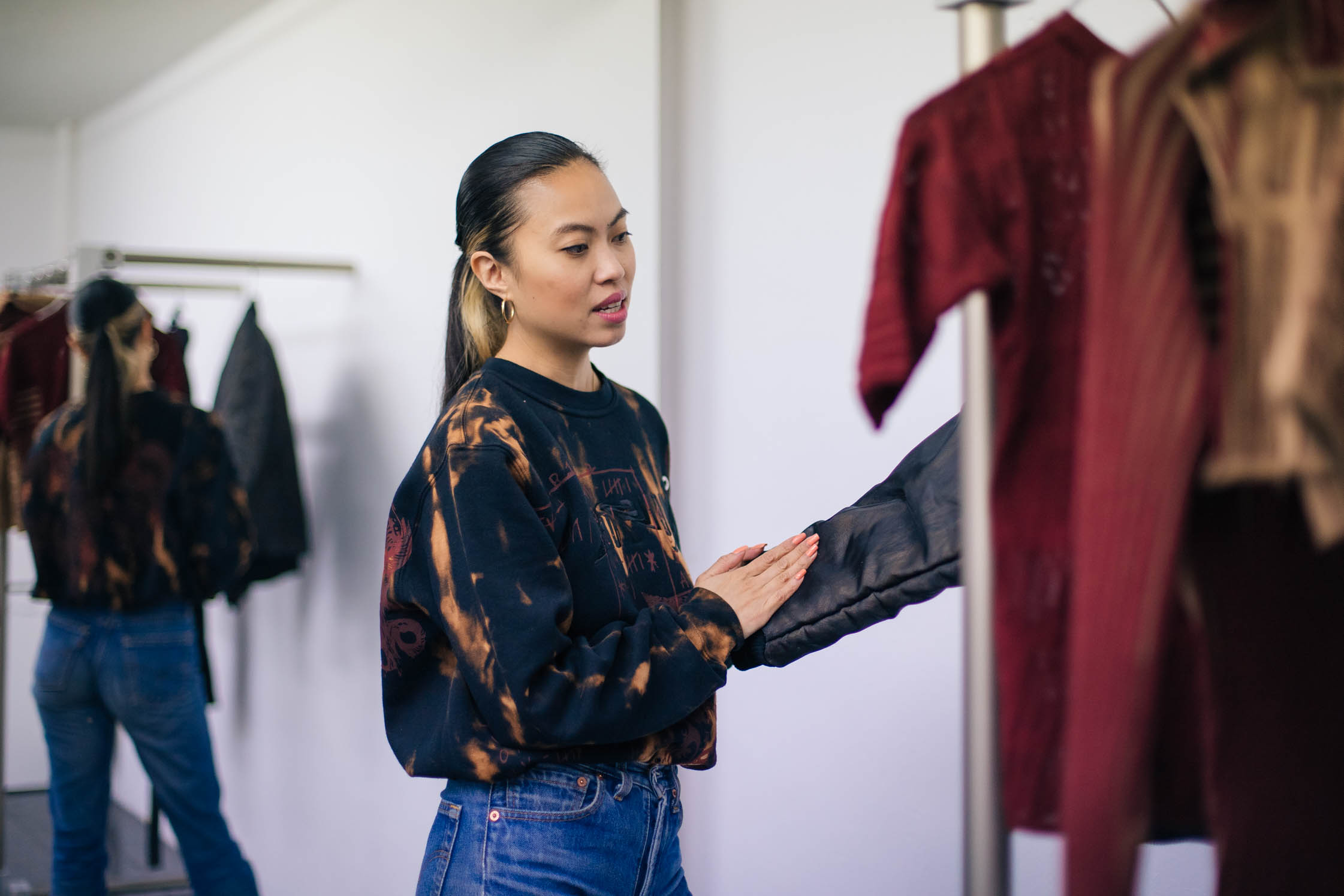
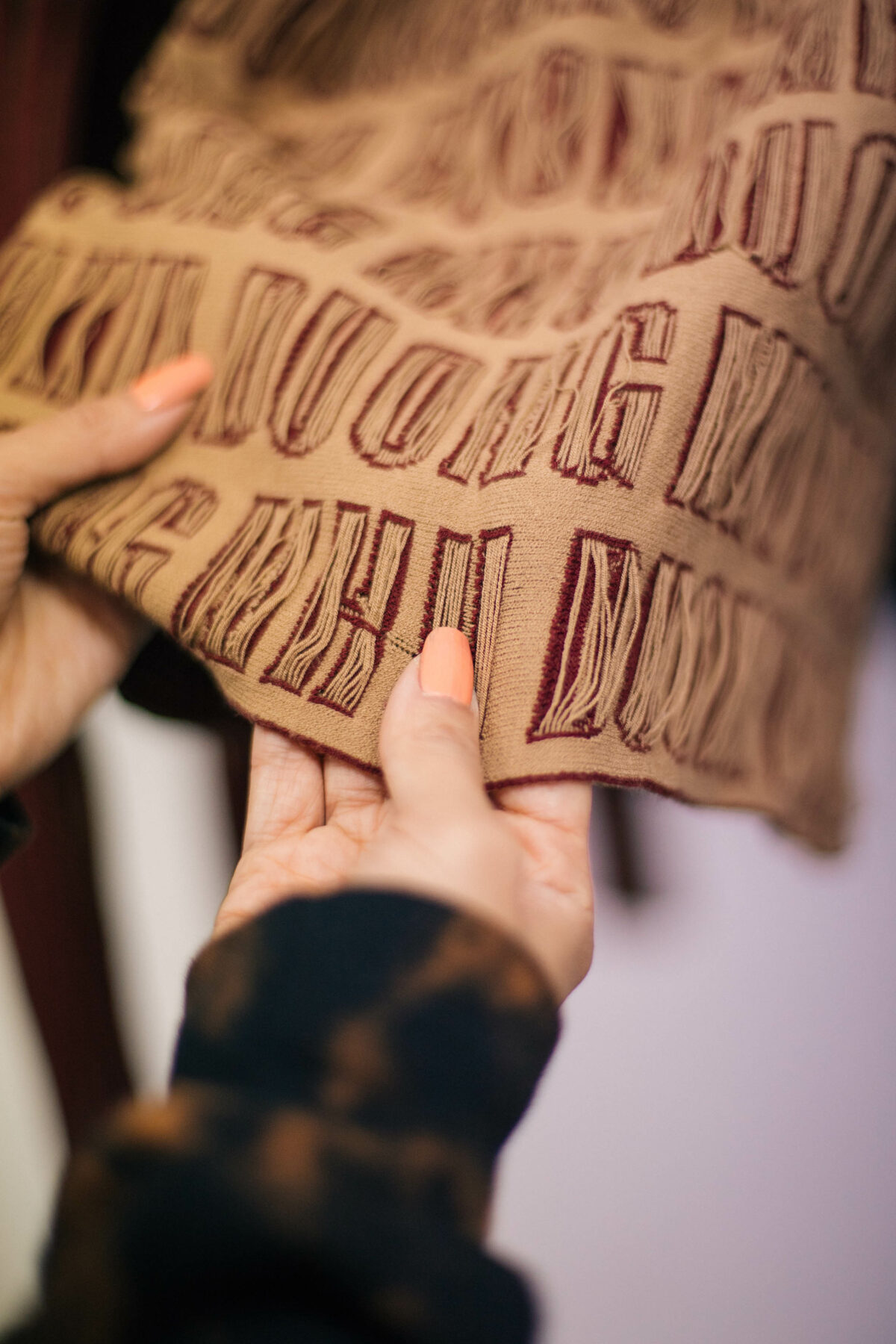
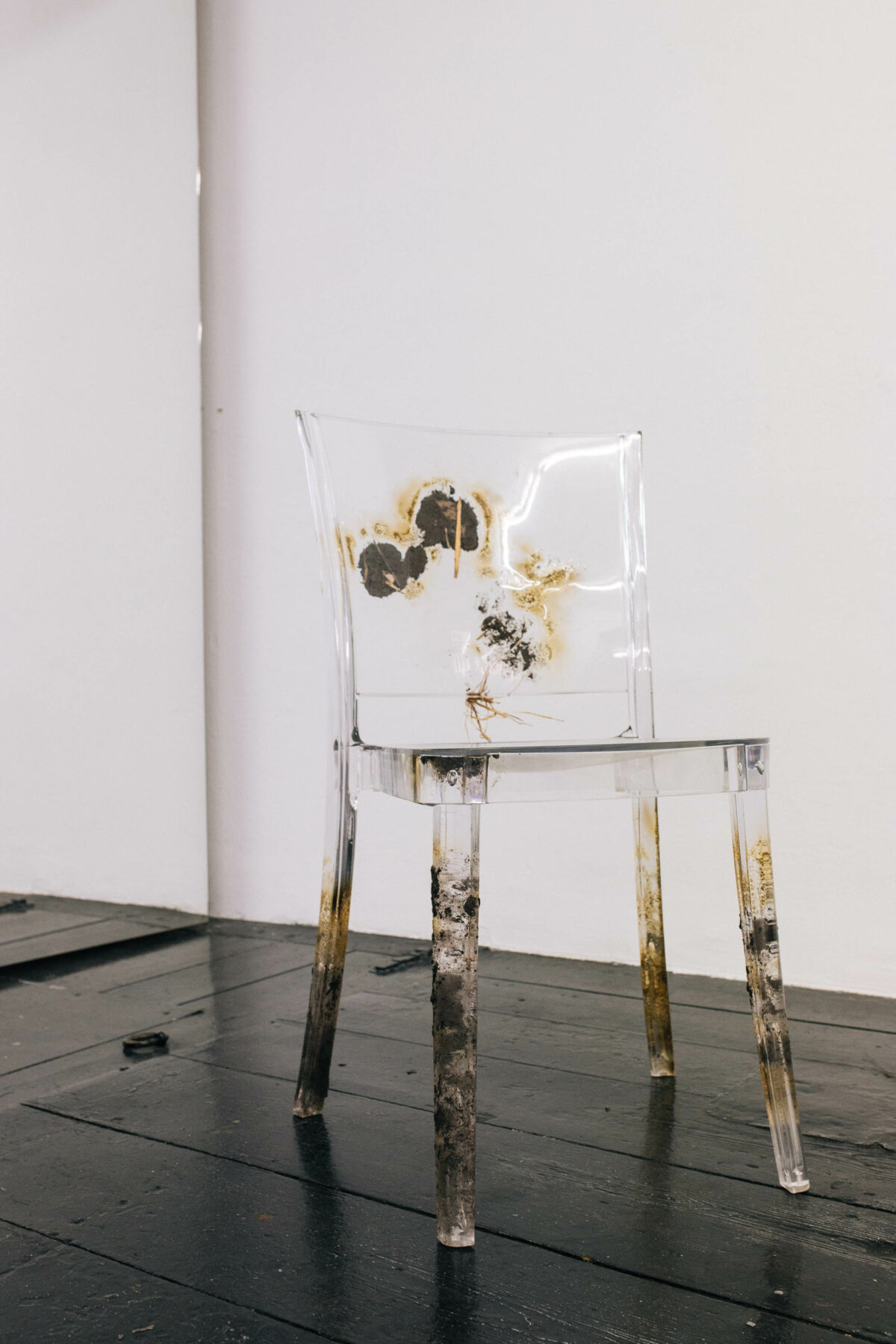
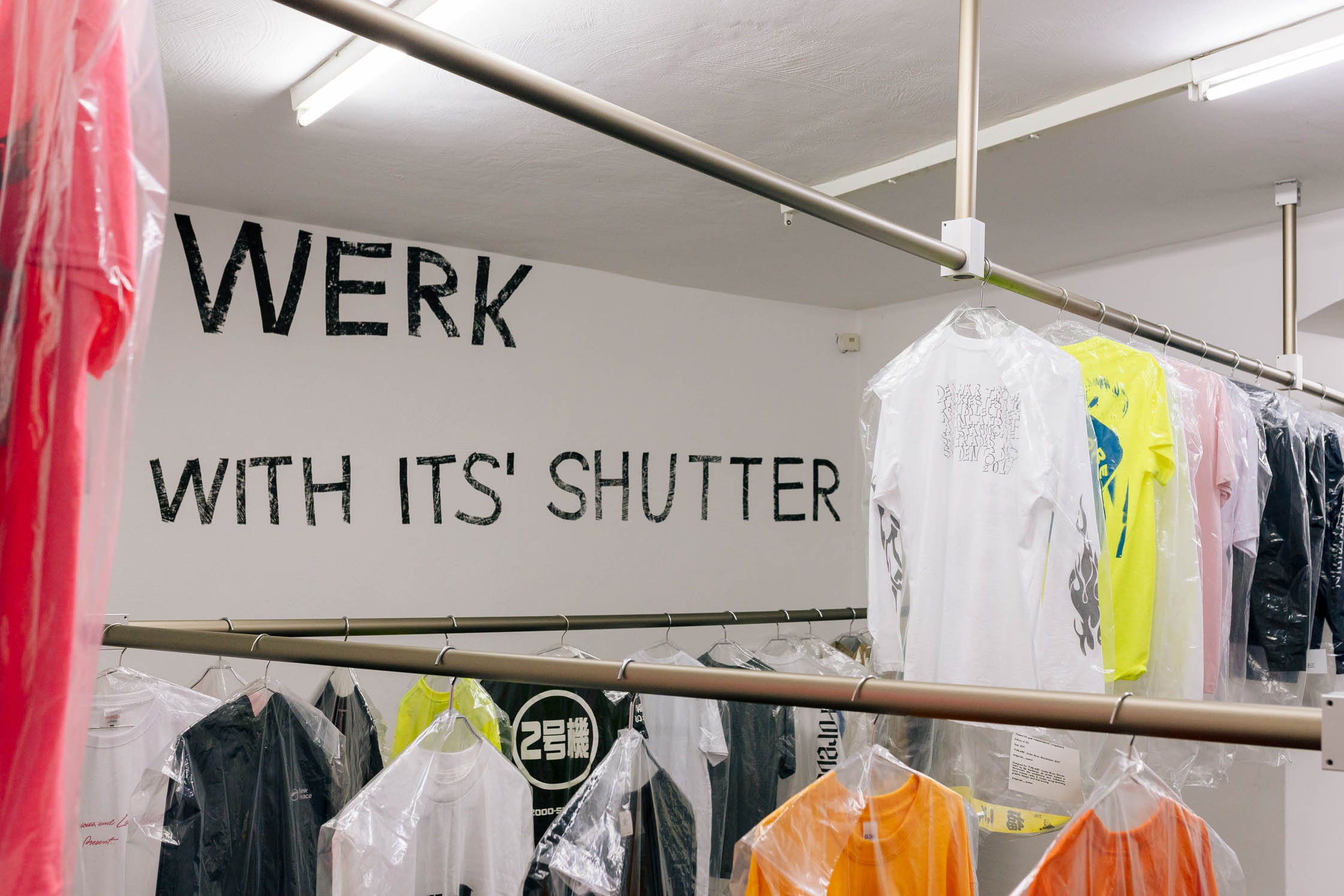
These questions are also the subject of the designer’s new exhibition, ‘Diaspora, Ma Homey’, on show for the month of November, 2018, at Space 31 in Berlin. Conceived by Duong and Vietnam-born visual artist Sung Tieu under their interdisciplinary project TROI OI, the group show features contemporary artists, fashion designers, and musicians from diaspora communities originating from Southeast Asia, and considers the recent and ongoing movement of people within and away from the region after the Cold War. Ruminating on the 1994 text, Cultural Identity and Diaspora by Jamaican-born, British sociologist and cultural theorist Stuart Hall, Duong was interested in igniting “a conversation with the audience about the experience of diaspora that reveals itself in the works, by exploring the everyday significance of territorial, ideological, and social borders, political and cultural identity, home, and belonging.”
The show uses the artworks as a starting point to engage with socio-historical and autobiographical accounts of the diaspora experience. More specifically, it investigates two defining passages of dispersion: the first in regards to exiting or leaving one’s home country for personal, political or economic reasons, and the second as being forced to culturally adapt, transform, integrate, or hybridize within a new home country.
“Today, ethics and sustainability are often used as buzzwords to market products, and that has become a trend in itself. It’s important to stay honest and transparent about what you do.”
“As I immigrated from Vietnam to Sweden at the age of seven, the question of fitting in and living between different cultures has shaped my experience considerably,” says Duong. “You naturally take things from one cultural context and put them into another. In a way, it is about bringing together the contrasting parts that exist in different cultures, as well as yourself.”
For Duong, “fashion can be a way to fit in and stand out at once.” Growing up, she watched her mother, a seamstress, at work, and immediately connected with the craft as “a way to reinvent myself and adjust to my surroundings.” And so began an attraction to the performative aspect of getting dressed. “’Dressing up’ is not only about trying on clothes, but also about trying on different identities and playing roles.”
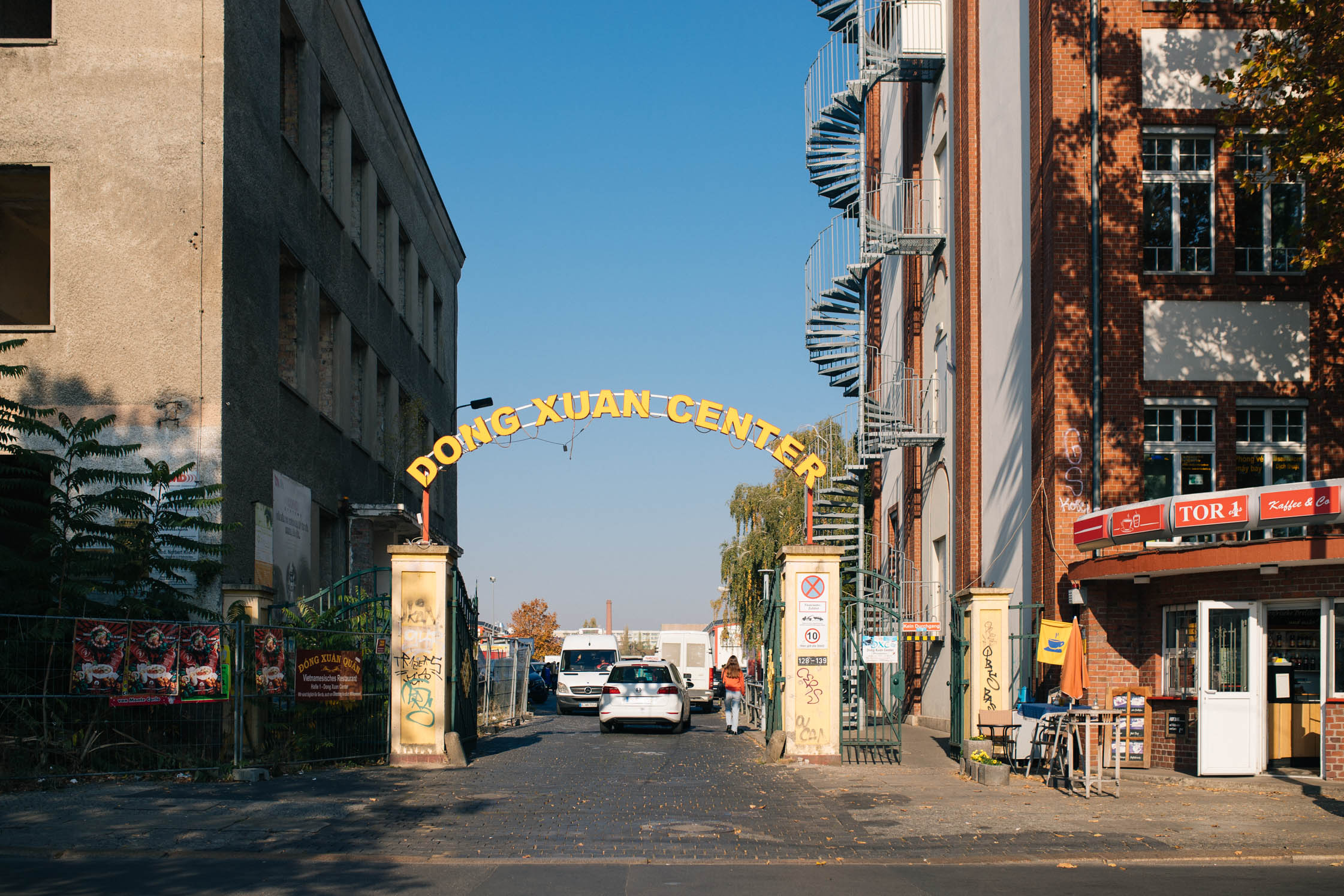
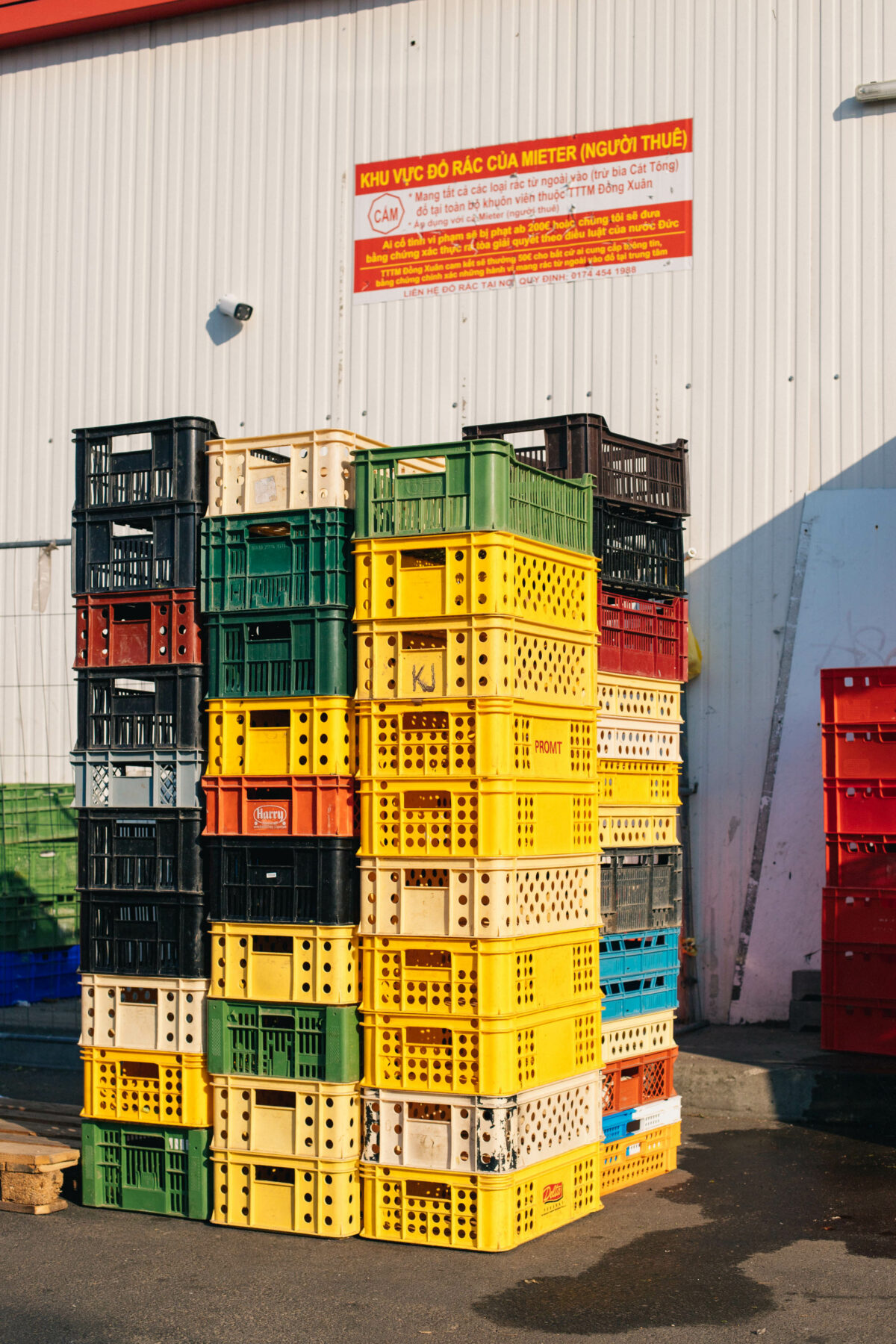
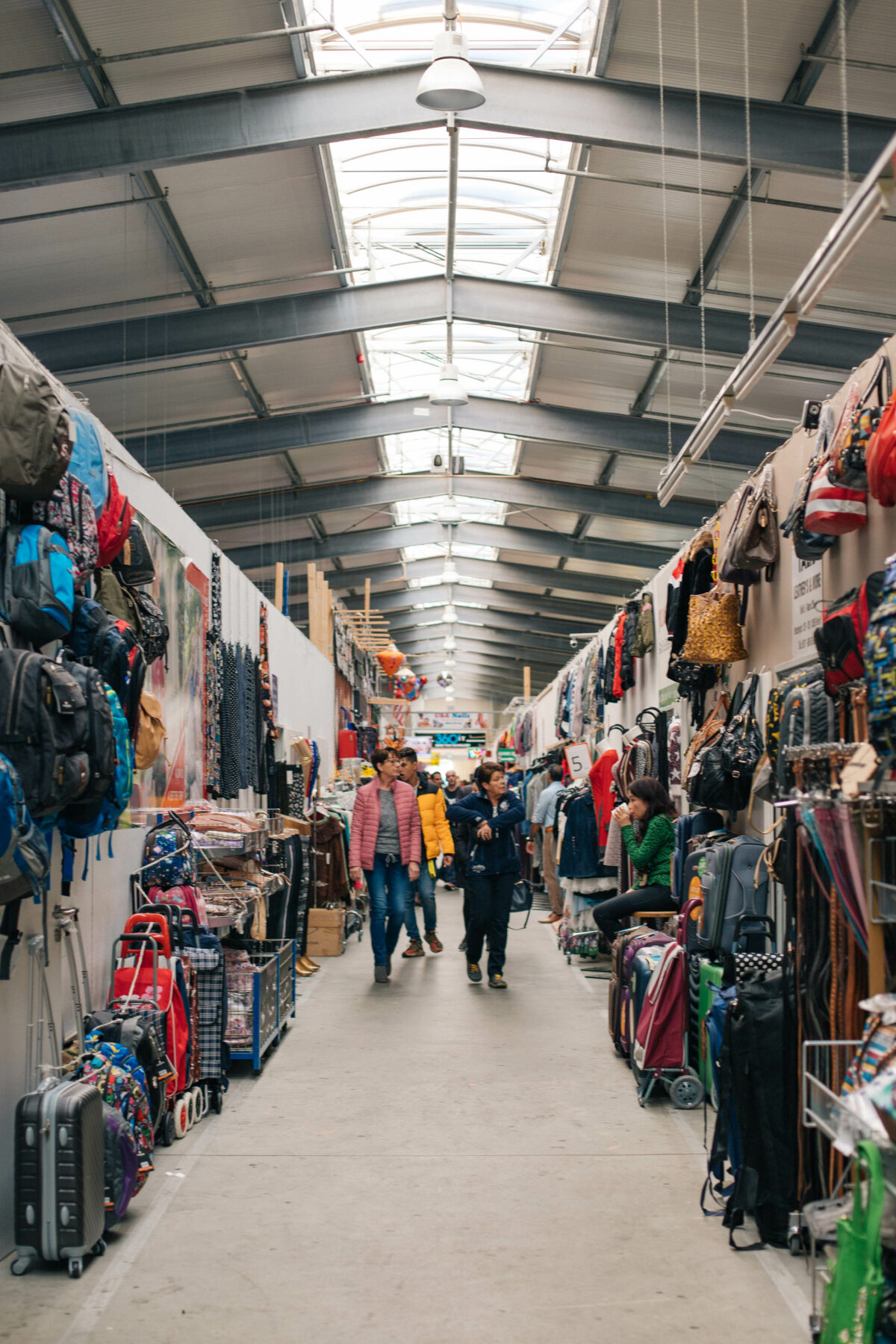
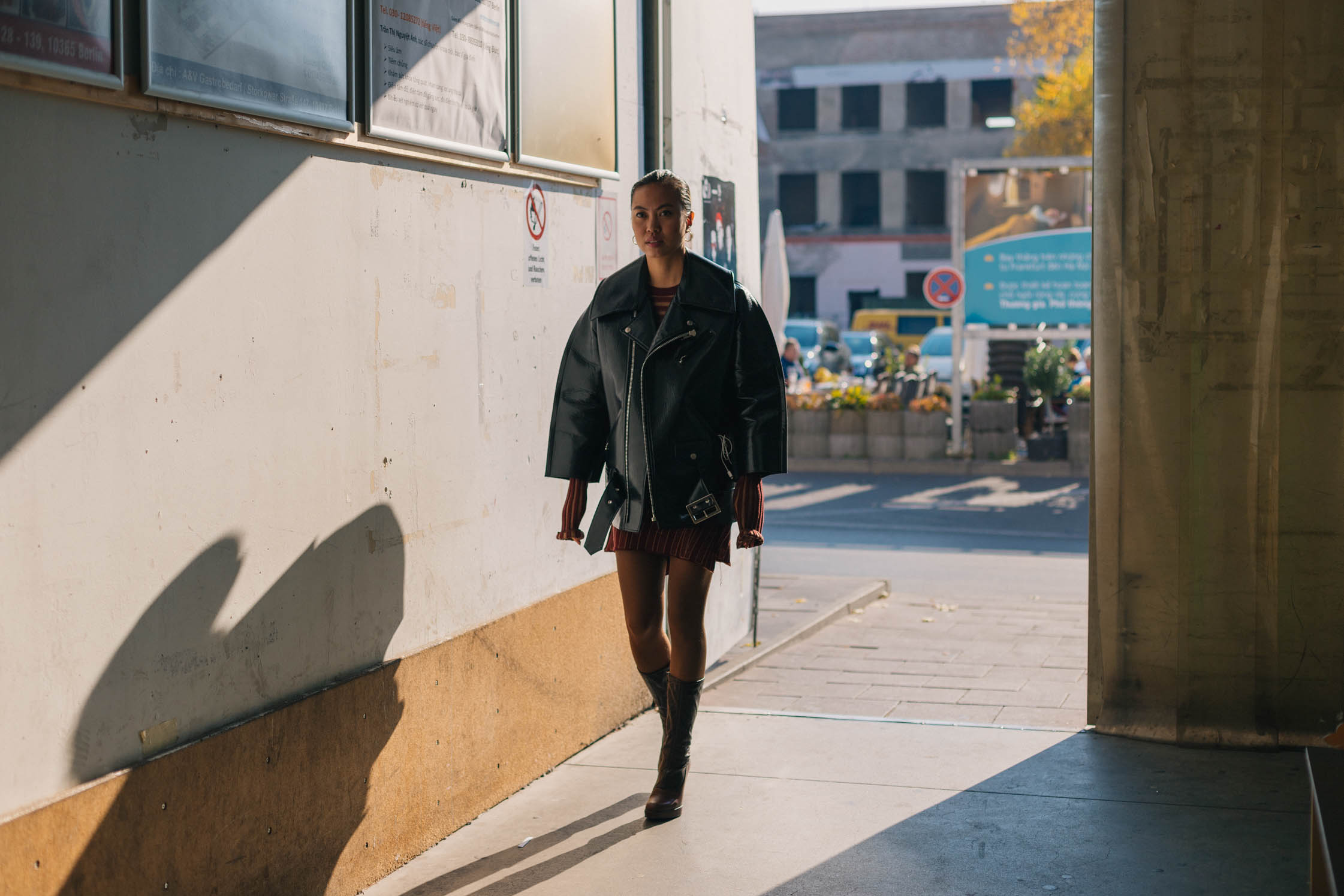
The designer, who operates a retail and exhibition space near Potsdamer Straße in Berlin called _31, which showcases new international designers and artists, eschews the traditional ways of producing, presenting, and distributing fashion, opting instead for a more nebulous approach that reflects the nature of the garments themselves. “I’ve tried to find my own ways of producing fashion, and to set up a structure that allows me to work at my own pace,” she says. “I work with small producers and source materials in Europe, allowing me to produce in a flexible way without much waste or overproduction. Today, ethics and sustainability are often used as buzzwords to market products, and that has become a trend in itself. It’s important to stay honest and transparent about what you do. I want to build something of lasting value and a community around my work, rather than chasing the latest trend.”
That freedom to experiment is Duong’s greatest source of inspiration. “Deciding your own timeline and projects, as well as finding your own process and ways to work, makes you grow,” she says. “I think that if you want to have your own label, you also need to be passionate about being an entrepreneur, so the work becomes not only about being creative when making clothes, but also being creative in your business decisions.”
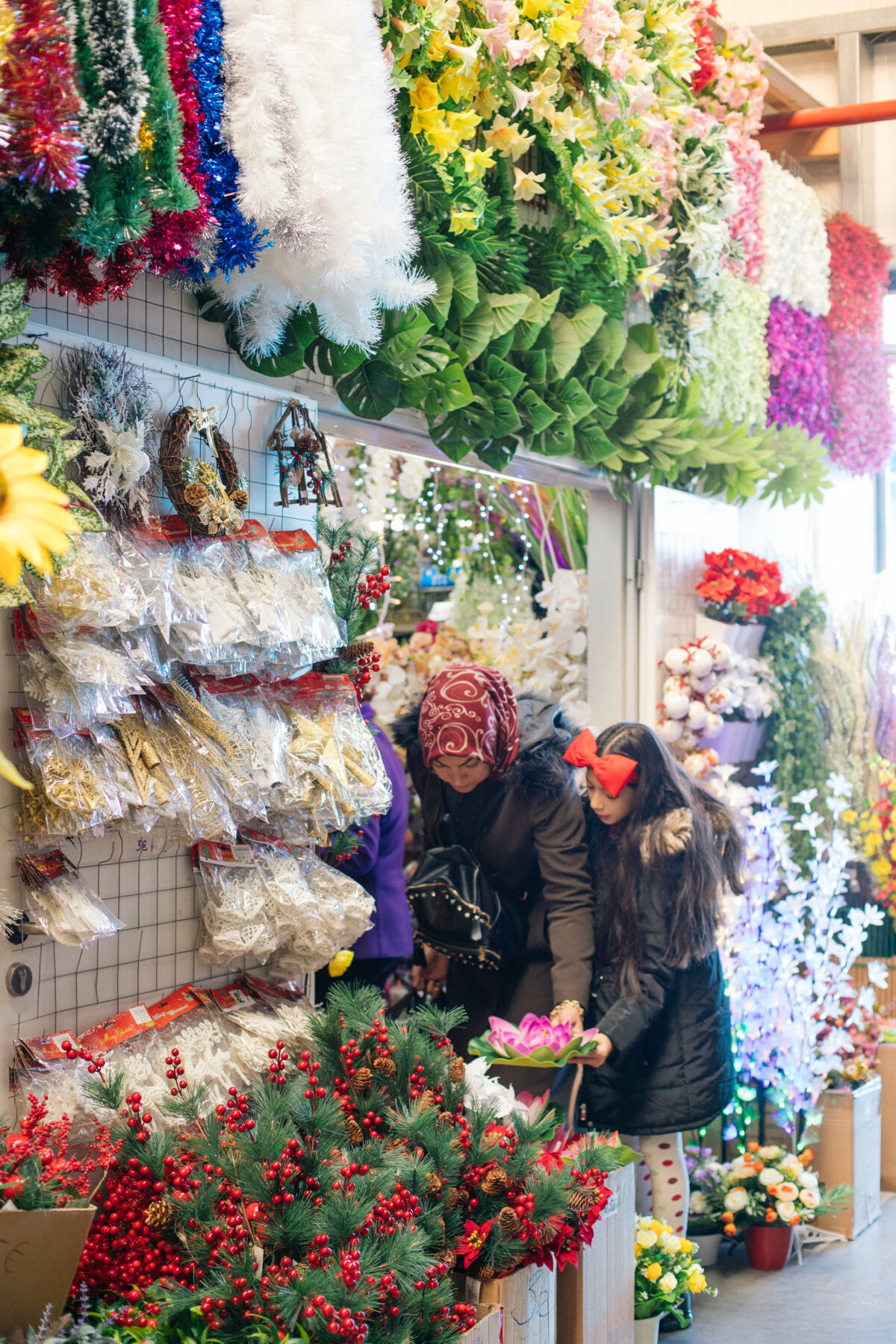
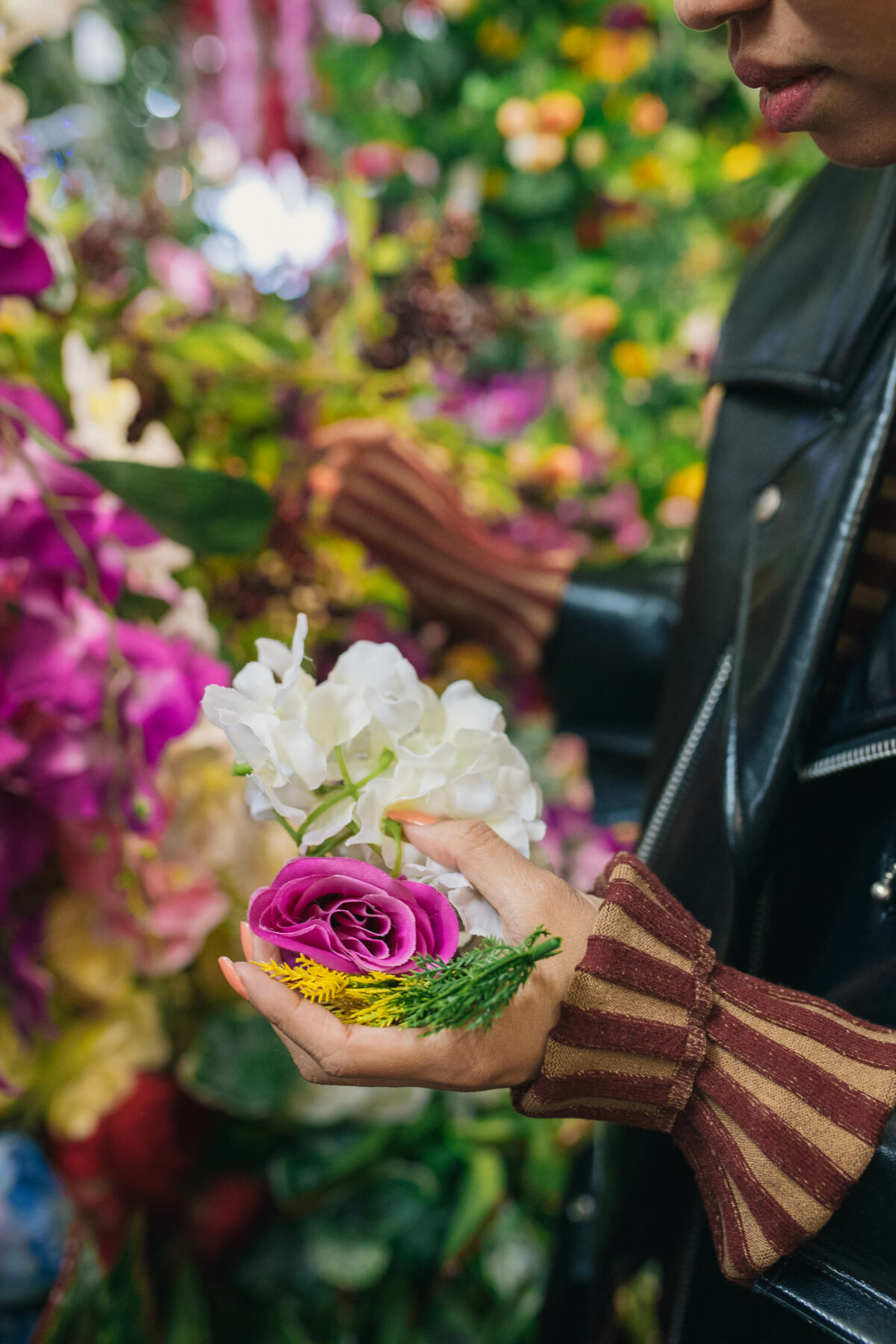
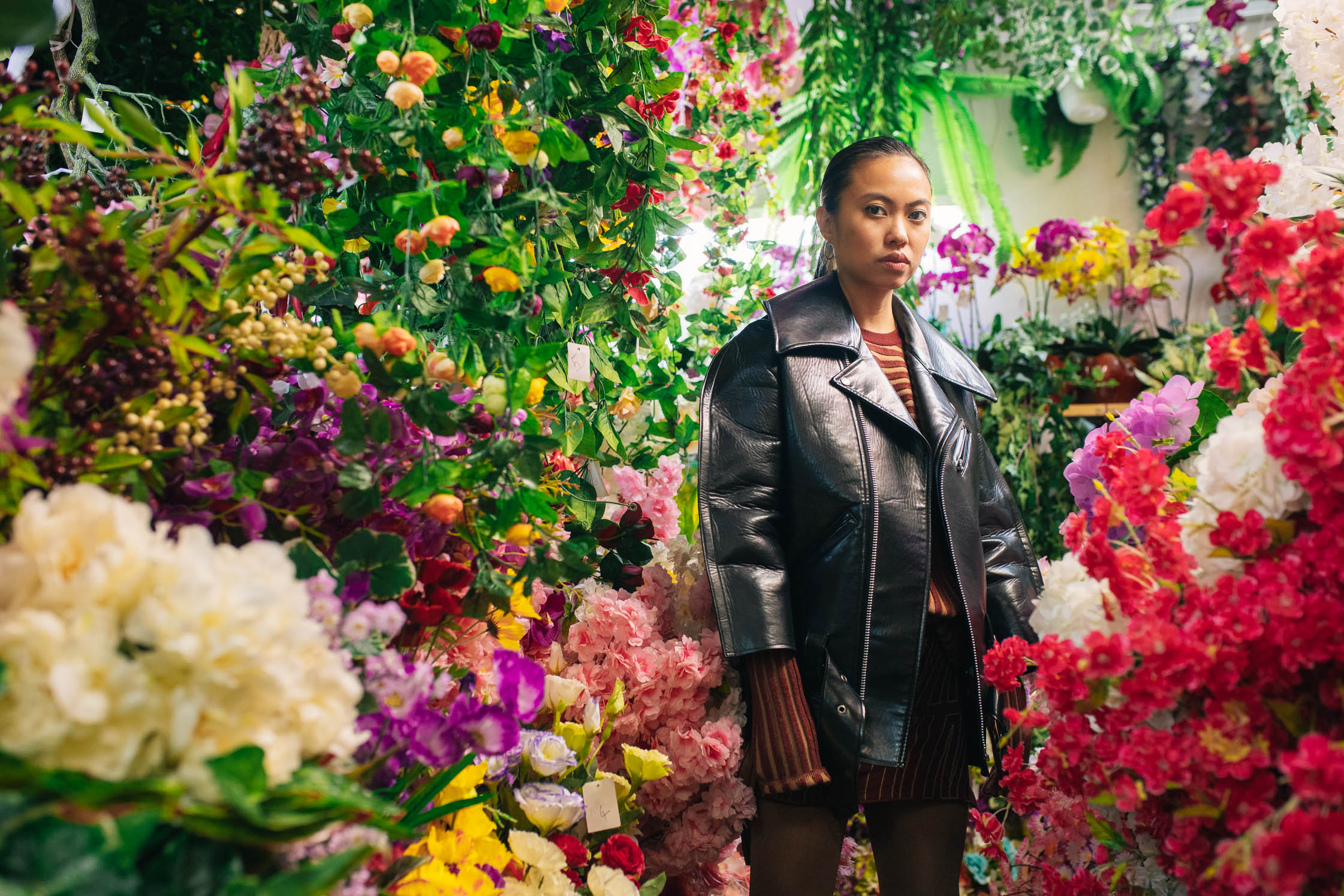
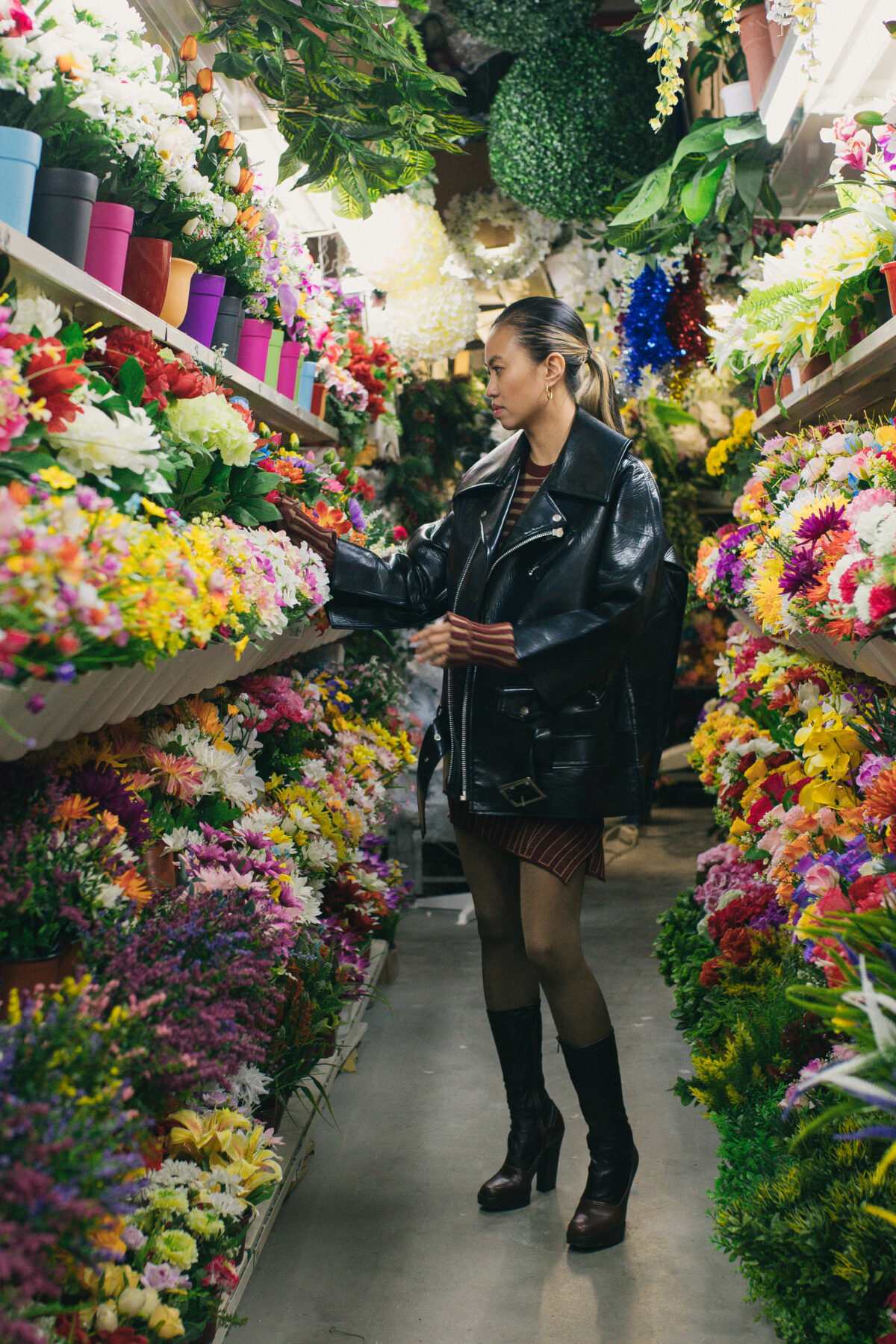
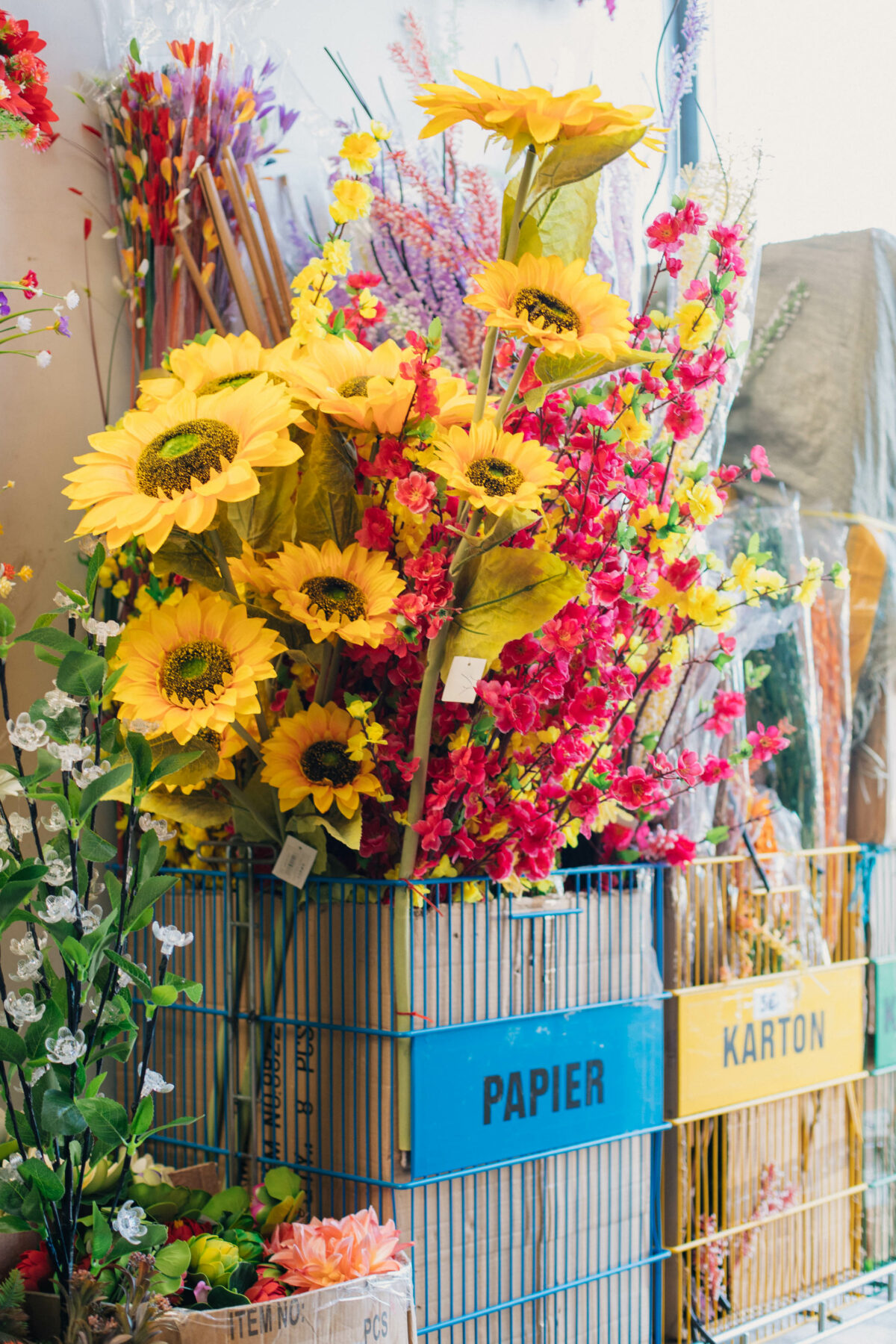
Berlin provides fertile ground for such amorphous, unbridled entrepreneurship. “There is a certain distance from the actual fashion industry, and this allows me to approach my practice in a more free manner,” she says. “I am constantly in contact with other practices like dance, art, music or theater. So there is a natural exchange of ideas and sensibilities, which often leads to some kind of cross-over or collaboration. It is this kind of access that inspires me about Berlin.”
Working in tandem with the arts breathes new life into Duong’s work as a fashion designer, allowing her to work on both commercial projects (such as Absolut Iconic, a presentation during Fashion Week Stockholm that showcased Absolut Vodka’s collaborations with innovative designers), and personally-driven endeavors such as TROI OI.
“Fashion does not exist in a vacuum and therefore it’s always, by definition, some kind of commentary or reaction to the culture we live in,” she says. “At best, fashion can be a seismograph for change, helping to elevate existing shifts in society.”
Nhu Duong, AW18
To Nhu Duong fashion is a tool of expression; it means something transformative and performative. Having started to experiment with fashion from an early age while growing up across the world, today the designer’s contemporary pieces blur fashion’s boundaries.
Her exhibition ‘Diaspora, Ma Homey’ at Space 31 in Berlin runs until November 30th. The group exhibition of contemporary artists, fashion designers, and musicians from diaspora communities originally from Southeast Asia considers the recent and ongoing movement of people within and away from the region after the Cold War, and its related aspects of migration, dislocation, resettlement and hybridity.
Check out Duong’s creation on her website, or follow the designer’s path on Instagram.
Text: Natalie Shukur
Photography: Jenny Peñas, Kristin Loschert
